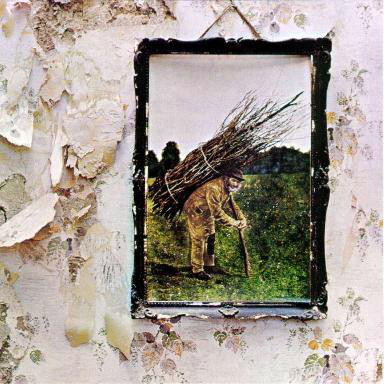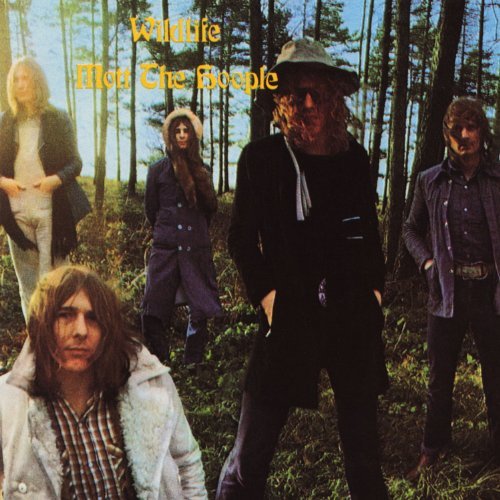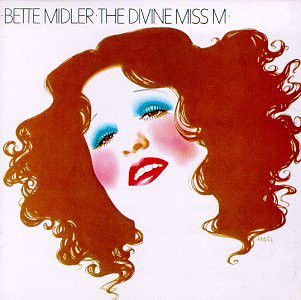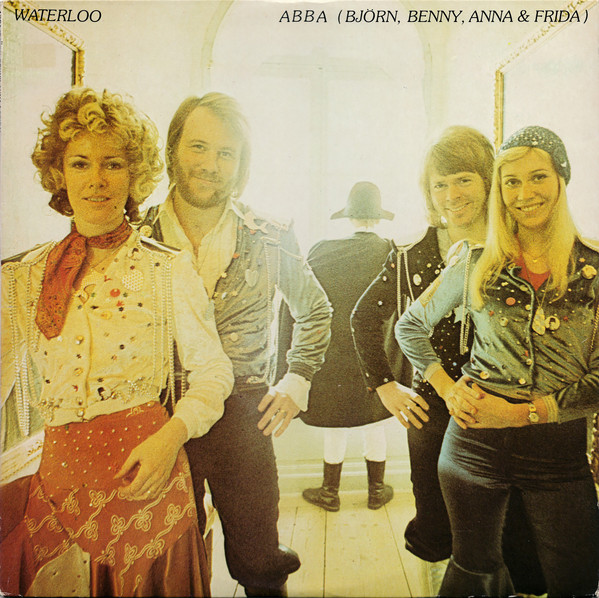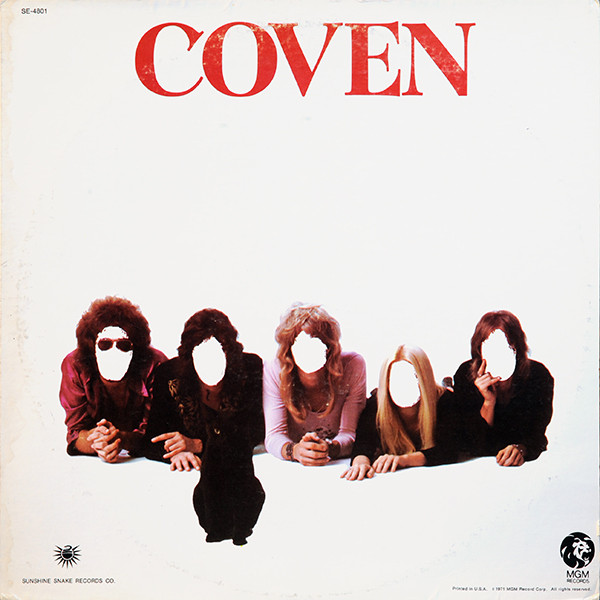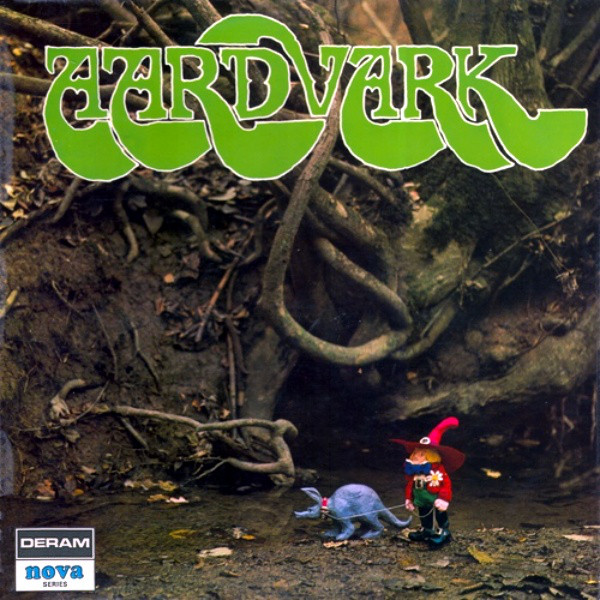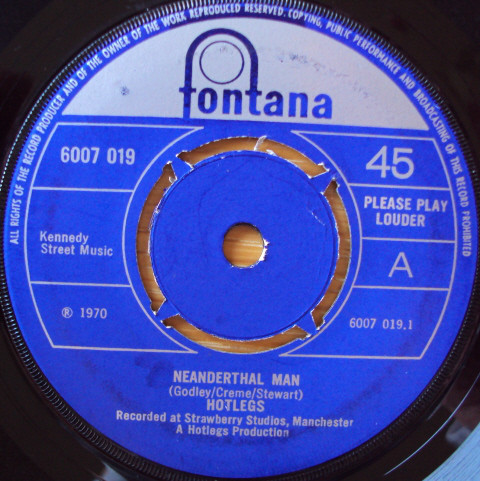
“Neanderthal Man” (1970) – Hotlegs * Written by Kevin Godley, Lol Creme, and Eric Stewart * 45: “Neanderthal Man” / “You Didn’t Like It, Because You Didn’t Think of It” * LP: Hotlegs Thinks School Stinks (1971) * Produced by Hotlegs * Label: Fontana (UK) / Capitol (US) * Charts: UK singles (#2); Billboard (#22)
George Tremlett’s The 10cc Story (1976) recounts how Kevin Godley, Lol Creme, and Eric Stewart recorded “Neanderthal Man” as a drum sound test, after which Fontana label owner Dick Leahy told them that the strange-sounding track with the muted vocals struck him as a surefire hit. His hunch paid off, and the UK #2 single served as a precursor to the smart borderline-novelty offerings in which the Hotlegs threesome’s future group 10cc would specialize. “Neanderthal Man” sounds in retrospect like a record that pokes fun at the folk-chant love-in sound that John Lennon had brought to Top 40 radio with “Give Peace a Chance,” and which Hotlegs rephrases for the sexually preoccupied seventies. The original Fontana label for the UK single instructs all listeners to “Please Play Louder.”


